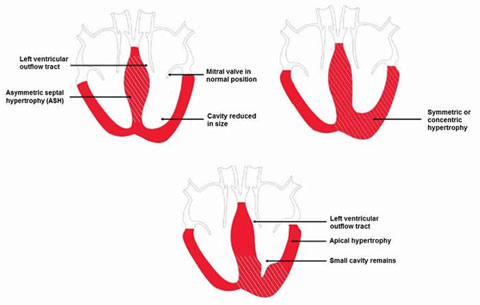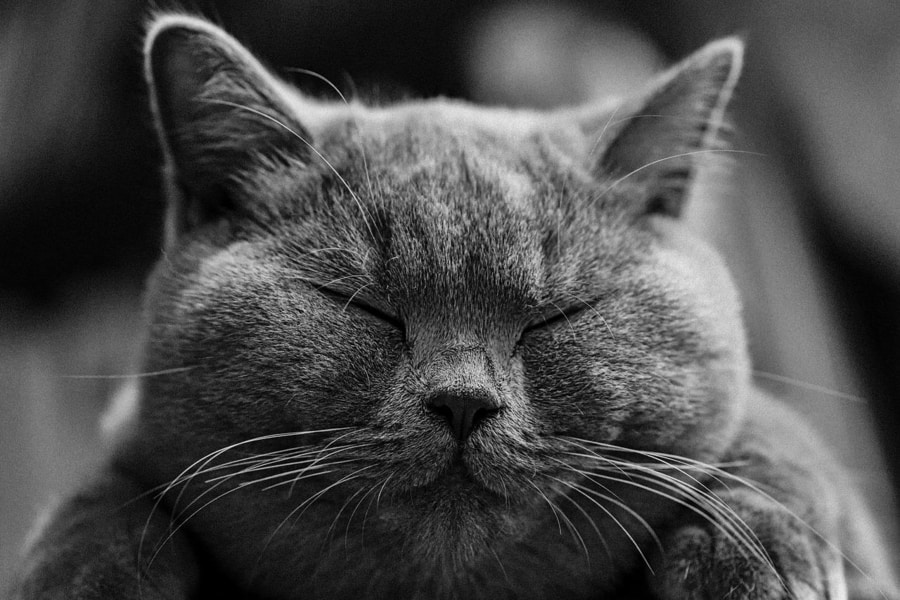Do you own a British Shorthair? If so, did you know that they are at risk for Hypertrophic Cardiomyopathy (HCM)? HCM is a heart disease that can cause cats to develop an enlarged heart muscle. While there is no cure for HCM, there are treatments available that can help improve your cat’s quality of life. Keep reading for more information on hypertrophic cardiomyopathy in British Shorthairs.
What is HCM In British Shorthairs?
Hypertrophic cardiomyopathy (HCM) is a heart muscle disease that can affect any breed of cat but is more common in British Shorthairs. In fact, 1 in 10 British Shorthairs may be affected by the condition. It is caused by an abnormal thickening of the heart muscle, which can make it difficult for the heart to pump blood effectively. Symptoms of HCM vary from cat to cat and can include fatigue, difficulty breathing, and episodes of collapse.
How To Diagnose British Shorthair Hypertrophic Cardiomyopathy?
If your British Shorthair is showing any signs of HCM, it’s important to take them to see a veterinarian as soon as possible.
There are several tests that can be done to diagnose HCM, including an echocardiogram (heart ultrasound), x-rays, and blood tests.
Your veterinarian will also likely perform a physical examination and listen to your cat’s heart with a stethoscope.

Types Of HCM In British Shorthairs
There are two types of HCM that can affect British Shorthairs:
- Symmetrical HCM, which is the most common type, and
- Asymmetrical HCM, which is less common.
Symmetrical HCM is characterized by an equal thickening of the heart muscle on both sides.
Asymmetrical HCM occurs when the thickening is greater on one side of the heart than the other.
Causes Of Hypertrophic Cardiomyopathy In British Shorthairs
The exact cause of hypertrophic cardiomyopathy in British Shorthairs is unknown, but there are several factors that may contribute to the development of the condition.
These include:
- Genetic disposition: HCM is often passed down from parents to kittens. If you are considering getting a British Shorthair, be sure to ask the breeder about any history of HCM in the cat’s family.
- Diet: Some studies have shown that certain types of diets may contribute to the development of HCM. For example, diets high in carbohydrates have been linked to an increased risk for HCM.
- Stress: Cats with high levels of stress may be more likely to develop HCM. If your British Shorthair seems stressed, try to provide them with a calm and relaxed home environment.
Risk Factors For Hypertrophic Cardiomyopathy In British Shorthairs
In addition to the factors mentioned above, there are certain other things that may put your British Shorthair at risk for developing HCM. These include:
- Age: HCM is most common in middle-aged or older cats.
- Gender: Male cats are more likely to develop HCM than females.
- Weight: Overweight or obese cats are more likely to develop HCM. Be sure to keep an eye on your cat’s weight and talk to your veterinarian if you are concerned about their weight gain.
If you think your British Shorthair may be at risk for HCM, be sure to talk to your veterinarian.
They will be able to perform a physical examination and order tests to check for the presence of the disease.
Treatment Of Hypertrophic Cardiomyopathy In British Shorthairs
There is no cure for HCM, but there are treatments available that can help improve your cat’s quality of life. These include:
- Medications: Your veterinarian may prescribe medications to help improve your cat’s heart function and reduce symptoms such as fatigue and difficulty breathing.
- Weight Management: Keeping your British Shorthair at a healthy weight is important for their overall health, but it is especially important if they have HCM. Talk to your veterinarian about ways to help your cat maintain a healthy weight.
- Stress Management: Reducing stress in your cat’s life can help improve their symptoms and overall quality of life. Try to provide them with a calm and relaxed home environment, and talk to your veterinarian about other ways to reduce stress in their life.
Tips To Care For A British Shorthair With HCM
If you have a British Shorthair with hypertrophic cardiomyopathy (HCM), there are a few things you can do to help keep your cat healthy and comfortable.
Be sure to provide plenty of fresh water and food, and make sure your cat has a comfortable place to rest.
You may also want to keep a close eye on your cat’s activity level and ask your veterinarian if there are any specific diet or exercise recommendations.
If your cat seems to be having trouble breathing, coughing, or vomiting, take him or her to the vet right away.
These could be signs of a developing heart condition, and early diagnosis and treatment are important.
In general, providing your cat with good care, plenty of love, and regular check-ups with the vet will help keep him or her happy and healthy for years to come.
How Long Does A British Shorthair With Hypertrophic Cardiomyopathy Live?
There is no cure for Hypertrophic Cardiomyopathy, and the disease will progress over time. If the cat doesn’t have any symptoms, it’s likely that they will live a normal life.
However, once symptoms appear, most cats will survive for less than two years. However, if the first symptom is a blood clot, most cats die within 6 months. (Source)
How Common Is HCM In British Shorthairs?
According to MedWire, 1 in 10 British Shorthairs are affected by HCM. Male cats are significantly more likely to develop the condition compared to females.
Other Common British Shorthair Health Issues
The British Shorthair is generally regarded as a healthy breed.
However, they do have some health issues that are more common than others.
We have written more in-depth articles on these health issues. If you want to find out more, click the links below.
- Hemophilia B
- Polycycstic Kidney Disease
- Hyperthyroidism
- Feline Aortic Thromboembolism (FATE)
Check out our article for an overview of all the common health issues that can affect a British Shorthair.
Conclusion
Hypertrophic cardiomyopathy is a common heart condition in British Shorthairs. It is important to be aware of the signs and symptoms of the disease, as well as the risk factors. If you think your cat may have HCM, be sure to talk to your veterinarian. There is no cure for the disease, but there are treatments available that can help improve your cat’s quality of life.
Elliot is the owner and lead writer at Lais Lairs. He is the proud owner of a Maine Coon/Siberian Mix cat named Lai. His oldest cat lived to be 18 years old so he’s learned a thing or two about keeping pets. When he’s not writing you can find him playing video games or playing fetch with Lai.
